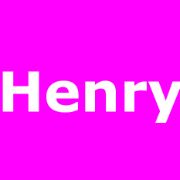Leaderboard
Popular Content
Showing content with the highest reputation on 01/14/2024 in all areas
-
I guess there are advantages and disadvantages to anyone's composing work ethic. But in this topic I will be talking about why I compose on paper and why it has proven so advantageous to me. There is perhaps a certain legend about composing on paper that it results in music that sounds more inspired. For me it's more that when composing on paper, my musical imagination has more free reign and can't be fooled by the sound of the composition. And I do think that "fooled" is the right word here because it can be very easy to have one's musical decision making disadvantageously swayed by the immediate feedback of sound while one is in the process of composing. Silence also allows me to compose music from a more dispassionate angle without feeling anything that the music might make me feel. And I think that helps me have a more objective relationship to the musical material and use better creative judgment. Sometimes I might whistle or hum the melodies to myself. I rarely need the help of any instrument as even vertical sonorities can be whistled/hummed or imagined (exception: writing music for instruments I'm not familiar enough with like guitar). But if I let myself feel the emotions of the music while I'm composing they interfere with the process and I start to build up too much expectation and pressure to put out the finished final product. While if I write the whole piece out on paper without listening I feel like I have all the time in the world to organize things the way I want before calling it "finished" and there's no pressure (which sometimes can also be a drawback as it can be easy to lose motivation). But I have resorted to going back and forth between computer and paper where I had listened to part of a composition before finishing it on paper. Usually I have done that (even very recently) because I was losing interest in a composition and hearing it provided a certain infusion of excitement and motivation to finish it. Usually in my style of composing (which has to a degree become accustomed to composing on paper) the melodic and contrapuntal lines take precedence and justify the harmonies. Even very unusual or dissonant sonorities can in this way be confidently (I hope) and deliberately written since the logic of the melodic line leads the ear and justifies the harmonies. Of course, the assumption behind composing only on paper is that the result will be simpler and to that effect, better conceived. Although as I have already mentioned, hearing an unfinished composition can also be advantageous as long as one has the self discipline to tear oneself away from the computer and return to the notepad (that's at least very important for me). The reason why I find it also inconvenient to start the whole process of composing on the computer is because it's not as easy to sketch things out on the computer. I have a small 8 in. by 3 in. notepad in which I jot my ideas down everywhere I go that I can keep in my pocket. It's really convenient for brainstorming. Later I set those ideas harmonically or for various instrumentations and variations. It's a longer process but it's easier than having fragments in a midi or other file form on the computer (for me). Back in the day I used to compose exclusively into the sequencer but circumstances in which I did not have access to a computer for extended periods of time forced me to write only on paper and I came to prefer it. Don't get me wrong though - I have tried to return to composing on the computer. I found it to be a very aimless and fruitless experience. The things that I "composed" in this way were more like improvisations that lacked any kind of musical direction or logic. Maybe I have just gotten old or something, but I much prefer my new way of composing on paper. Please share if any of this is relatable to you - or share your own composing work ethic and why it works (or doesn't work) for you! Thanks for reading if you've gotten this far! Peter1 point
-
Hi everyone Here is, without any particular context, a waltz that I composed just before Christmas (as I wanted to compose a special piece with a Christmas feel in it). I already posted a waltz long time ago (lol) in 2020 I wanted to reiterate the exercise and compose another waltz in the same style. This is obviously Thaikosvky-ish, and I'm quite proud of the finished product. One of the challenge in composing it was to try to add harmonic novelties, as waltz harmonic progression tend to be quite scripted in advance. I also tried to reproduct that particular "magical" feeling that can be heard in Tchaikovsky's ballet and waltz. Feel free to criticise and say what you think of it. Camille1 point
-
Interesting. I have mixed thoughts about this. Music is rammed down my/our throat(s) so often that it’s become an annoyance in supermarkets; TV ads and documentaries, lifts, presumably to “enhance our experience” of what’s behind it. Film music annoys me. Worse, being in a telephone queue. I’m sure this so-called music is designed to aggravate people in the hope they’ll hang up. But in music designed to be listened to I find meaning in its sensuality rather than emotion (although a good ‘major key’ build up and climax can be exhilarating). I have to close my eyes and be drawn in to the mood. I want imagery, however surreal – anything from the abstract to the quasi-realistic; subtle sensations that span out as imagery of a kind. Hence my faves include the likes of early Sculthorpe, Delius, Debussy, Lutyens, Villa-Lobos et sim. I suppose it doesn’t help suffering synaesthesia which is a cross-modal neural problem. I don’t know if I had it naturally or through neural plasticity from ‘ingesting’ certain substances when a little younger. As I understand it now, synaesthesia is something that can be cultivated if one wants it. I rarely find emotional meaning in music which through European cultural tradition usually implies ‘key’ and the means to exploit concordant harmony. The semiotics are well established. I listen to music in keys, sure, but for me there’s no need to add to it as a composer. It’s more about being a filter to atmosphere, to impression (in which moments of tonal centre can happen but the evanescence, the flow seem more dominant in the necessarily loose structure. Yes, music can evoke emotion but I can’t easily equate that with meaning. Once more the forum has provoked me to think about this because I’m never sure why I compose. It can be exciting...it can be frustrating!1 point
-
Oh this quite a specific and though-provoking. Thanks for sharing. Always wanted to put thoughts into this. I rly wanna write abt this in a longer form and post it elsewhere when I have the time to. But for now, these just my few cents. It is quite like the hard copy vs soft copy of any other form, eg movies ( which engages, but also kinda dictates your sense ) vs reading ( where the remaining spaces are left to filled in by your own ). Personally, mines more or less based on pragmatism, the skills and the comfort level I have. A short hist: I used to be very tech-adverse and detested the many complications, risks and connotations that comes with tech. I preferred to keep it simple and antiquated ( the beauty of it ). So I had neither the skills nor confidence and desire to do things up in com in general, even for prose, let alone score notation. Most of my present pieces in software had their first drafts in manuscripts in those years ( 2015-2018 ) - all of which I still preserve for memory and reference. Now that I got increasingly comfortable with, and even embrace, tech ( due to work ) and social media more these two years, I ended up also utilizing them for my personal endeavors ( a main one being music ). I started to re-work most of my pieces fr the past from late 2022 ( I stopped learning music officially since 2018 ) . ---------------------------------------------------------------- So yea, as much as I use software way more than paper now, I won't put a judgement as to which is better, but respect what suits one person at a particular pt on his/her life and what exactly ( or wht exact piece ) they are doing - this is also becos of my composing exp: Back then, I only write a piece on paper when I have played it on piano many, many times and really liked it. So that idea better be sustain in me long enough. However, this approach also means that ideas that are somewhat good or are fleeting do not get written down and most of which are forgotten. Another issue being I tend to edit and change a lot, which means there are so many erase marks and cancellations ( for spaces which were erased too much and the paper is damaged ). Also, it can feel very guilty to completely abandon an idea which was written but cannot be erased becos it will damage the book. its like composing until you give up on that piece and it stay as an eyesore in that manuscript, and looks back in regret and guilt. But at the same, the I'm not limited by the sounds and visuals the software gives, but by my playing and imagination. Writing on pencil on paper has that beauty which I like, esp when you keep it for years - when you look back the feeling can be amazing ( but as elaborated need not be always so ). There's that touch and element of honesty I feel - after all, its a real tangible thing you can touch with your hands. Also, as most notation requires internet ( if i'm correct), then as long as you manage your surroundings, there are much fewer, or at least not too many, distractions. Final plus t being this approach saves eye power in this day and age. Now, on using software. I'd say its a personally pragmatic choice. Everything from writing to publishing it. I have gotten over all that saving and organization and the know-hows of tech and social media. Music has so many permutations and combinations, some of those that we like more aren't even explored by ourselves. Software allow us to explore those patterns we think we may want more quickly and sift out those we don't rly want as much, to be left with fewer options and eventually come to a decision. Danger being one gets too into the music on paper, and not the actual playability of pieces, which can be easily compensated, As for inspiration, if I hv an inspiration that I wanna keep ( say a catchy theme ) -while online, I'll write them on a " miscellaneous score " file where I keep ideas which are temporarily not decided to be pieces. -But if late at night ( where I dont wanna on my laptop again ) / not with my personal laptop, I'll write in in whatever scraps of paper I have, bf I transfer them. Ofc there are many times I lost, or forgotten abt, my ideas - but this has less with the form and the topic. I very much relate to this. I don't compose on both computer and paper on scratch almost entirely. Just doesn't work for me. Nothing comes out, unless there's alr something. Doesn't matter where, when I put in notation, there's usually a piece or at least a theme. If not, for me its just a waste of time. If I compose anything on scratch, it is only in front of the piano. Though, I must say once I have a main theme, I just experimenting and thinking in front of the software, while also taking time to ponder things without the visual and audio influence of the software, walks etc... ----------------------------------------------- So yea, now I use software generally to save time and capture and develop ideas. Paper is a past/ once off thing. But I still love both ways : ). Beyond computer and paper though, is the third ingredient in this composing machinery ( prior tp publish ), which is none other than ourselves. And ofc others ( like y'all ) , in the post-publish stage. Idk... these are just some not very well-organized thoughts. Hope there's some relatability and I'll eventually be able to put more prose and organize them into some actual piece of writing.1 point
-
Don't worry Oliver, I admit that it's me who is laughing at our lovely Peter! I laughed since he used excessive ! there!!!!!!!!!!!!!!!!!!!!!!!!!!!!!!!!!!!!!!!!!!!!!!!!!!!!!!!!!!!!!!!!!!!!!!!!!!!!!!!!!!!!!!!!!!!!!!!!!!!!!!!!!!!!!!!!!!!!!!!!!!!! Henry1 point
-
Yes - that Cursed Castle piece does have some more dynamic contrasts in it. LoL! If you hover your mouse over any particular reaction (or if you tap that reaction on your phone) then it tells you who reacted with each reaction type so I know that Henry reacted with the laughing face reaction haha! You too! I always look forward to more of your music!1 point
-
Hi @Eric N, welcome to the forum I think the best way to improve is to look at examples of composers you admire and want to sound like, analyse their pieces and take note of the things they do that make you like his music and then apply it. (I also recommend a similar process to avoid sounding like composers you don’t like) Learning music theory and improvising always works to improve your music Maybe you could consider adding pedal and dynamics for a better effect.1 point
-
Hello @Eric N, Welcome to the forum! I like the circle of fifth pattern you are using throughout while building different rhythmic and melodic pattern above it, this gives a sense of growing during the piece. The feeling is cool and chic for me! What style do you wanna write? I think this one will a pretty good piece for a pop style piece! Of course you can try introducing some modulations instead of staying in A minor throughout, but I really think the simple harmonic pattern does justice to the style of the piece! Also what do you wanna achieve with different writing skill set? More intense emotion or some thoughts you wanna express? Thinking this may help boost your composing too! Thx for joking and sharing your music! Henry1 point
-
Hearing all the flaws can also be a kind of narcissism. In narcissism you can't judge your own music in a more objective way. You will find it flawless or full of flaws. I clearly remembered after I had finished the fourth movement, I hated it so badly. I was exhausted mentally and intellectually, and I couldn't find any good in it. I told my dedicatee it's just trash. Now I love it so much despite of its flaw. I think it's true the composer will be more attracted to their own music. Just imagine a mother, regardless of how good or bad her offspring is, she will be atttacted to them. As a composer you should be the one who know your piece. The product, regardless of its quality, is what you have strived for and given birth through hard labour. I think the utmost thing, or what art can only do is to reflect yourself truly and honestly, without any disguise and fakeness. I think writing a mastetpiece is always my goal, but you have to write a masterpiece ABOUT YOURSELF in order to write a masterpiece to mankind. It's about uniqueness resonate with others, not only for yourself nor others. I think it's a trace of life's journey. It presents the period of life and thoughts when you compose it. You can apperciate it, hate it, laugh at your own naviety (both in terms of compositiinal technique and personal thought). But it is as it is, you cannot change it. Even if you try to improve it, that's only your thoughts now, and the past cannot be eradicated. For me I will treasure it and embrace it, no matter how good or bad it is. I always listen to it and think about it, and I think it will be too much if it prevents new pieces coming, luckily not in the present moment. As Beethoven said, every one of his quartets is good in its own way, even he admitted he loved op. 131 most. I will try to walk down a different path and see if I can write different and better music everytime. For example, after writing the first movement of my first clarinet quintet, I thought it the best music I could compose, and it prevented me to compose later movements, so I just went to compose a second clarinet quintet first. Later I had the desire to complete the first quintet, and now I find its third and fourth movement much better than the first. I deliberately write fugue and all kinds of fugal technique in the third, and keep the flow smooth in the fourth with smooth counterpoint. They are absent from the first. I think almost any artist will be narcissisitic, only in degree, otherwise they will not yearn to express themselves in different forms of art. But it should not prevent your progress and development. If not, it is beneficial to be narcissistic since you know what to do and how to do it.1 point


.thumb.png.8b5b433a341551e913a34392660bc95b.png)

